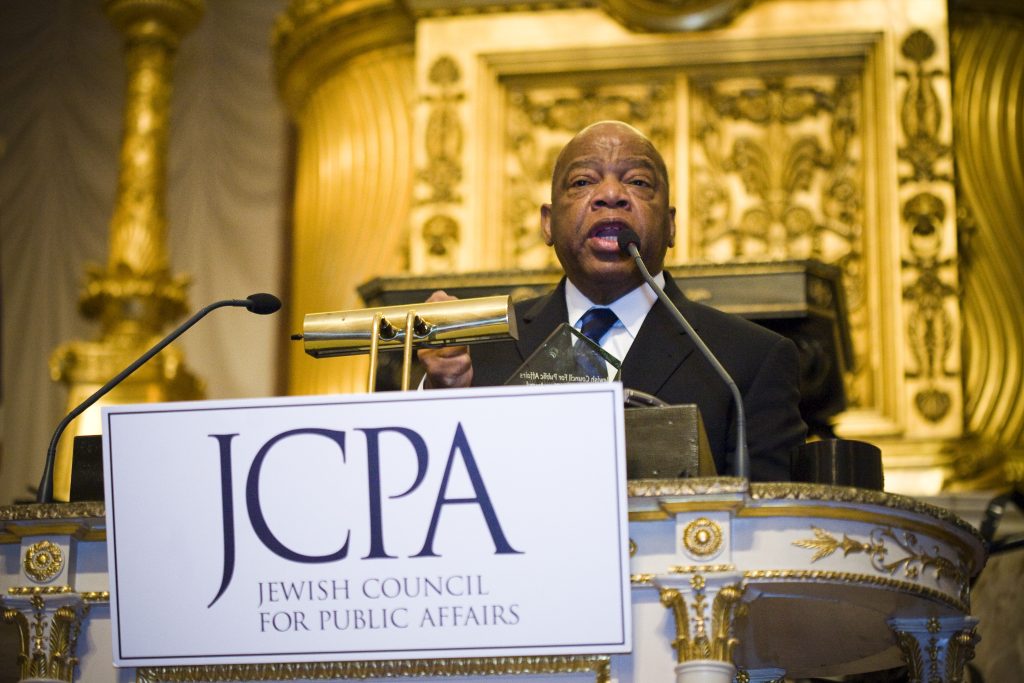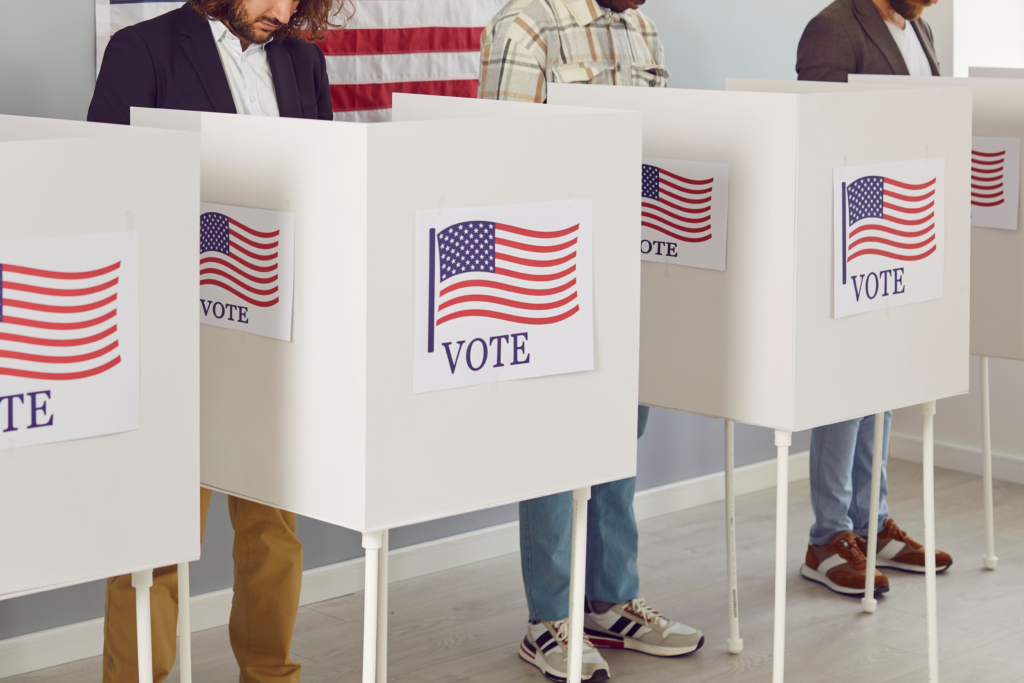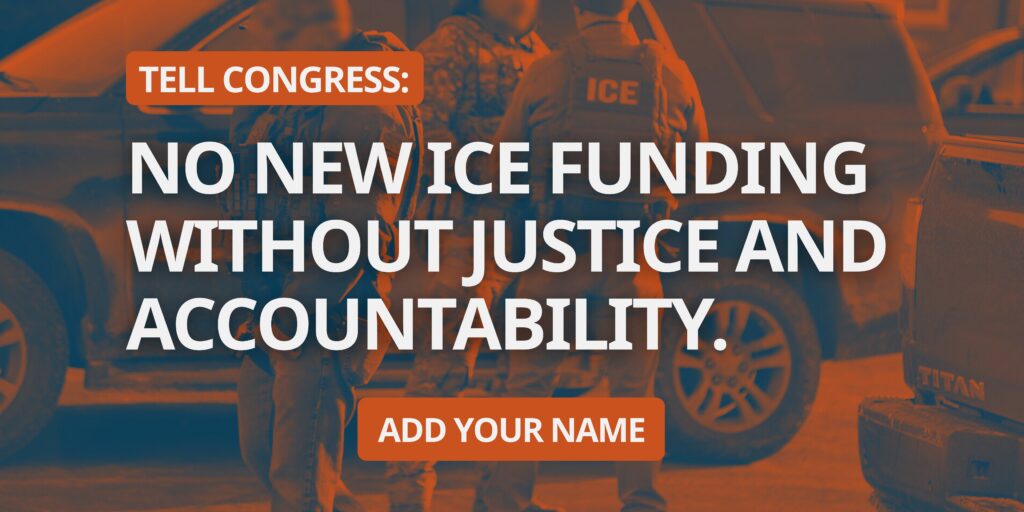Voting and civil rights
The right to vote and participate in our democracy is a core American Jewish value. The bedrock of our democratic process is the right of every eligible citizen to cast a ballot and have that ballot counted. Achieving a government that is responsive to the needs and aspirations of its people is possible only through maximum citizen participation in the electoral process.
Rapidly increasing voter suppression efforts fundamentally undercut our democracy, with particularly dire impacts on Black, Indigenous, Latino, disabled, transgender, low-income, young, and elderly voters. This requires comprehensive solutions at the federal, state, and local levels.
Our voting rights priorities include increasing access to the ballot box, strengthening democratic institutions, and expanding representation. We are pushing for the restoration and expansion of the Voting Rights Act, and democracy reforms to prevent voter suppression, help improve elections, advance voting rights (including for formerly incarcerated people), and reform campaign finance and ethics rules.
Take Action:
Federal Legislation: Support the John R. Lewis Voting Rights Advancement Act
Model State Legislation: State-level Voting Rights Acts
Resources:
JCPA Voting Rights Fact Sheet
Election protection and civic engagement
The cornerstone of democracy is the election process – and free, fair, safe, and accessible elections are critical to protecting the rights of all communities.
This includes ensuring that elections are administered impartially, effectively, and securely – all the more challenging and crucial at a moment when local election officials are facing increased threats and harassment and insufficient resources. It also means ensuring that the Jewish community – and all communities – turn out to vote and to more broadly engage in our civic processes no matter their background, ideology, location, or denomination, recognizing that it is inherent to protecting and strengthening our democracy
Take Action:
A More Perfect Union: A Jewish Partnership for Democracy Toolkit – Ensure a Free, Fair, Safe, and Accessible Election
Resources:
JCPA: Elections Engagement Guide for Nonprofit Organizations
The Reform Movement’s Every Voice, Every Vote Campaign
Hillel International: MitzVote
Countering disinformation and extremism
The proliferation of misinformation (false claims spread unintentionally) and disinformation (false claims spread with the intent to manipulate and deceive) on social media and other online fora pose a fundamental threat to our democracy and our safety – fueling attacks on our institutions and our communities.
Antisemitic conspiracy theories are often inextricably linked with many forms of disinformation and extremism, as we’ve seen firsthand in the cycle of violent attacks targeting Jews, Black people, immigrants, Muslims, and others.
Effectively countering mis/disinformation and extremism requires all of us to educate ourselves. States and local governments and school districts can play crucial roles in advancing media and digital literacy policies and programs. And make no mistake – social media companies have a fundamental obligation to protect their users by removing and holding accountable those promoting hate, extremism, and violence.
This is all the more critical as extremist actors of all stripes exploit the Israel/Gaza conflict to advance online hate and disinformation in new and frightening ways.
Take Action:
Watch & Share – JCPA & CCDH Virtual Event: Understanding & Countering Online Hate & Extremism During the Israel/Gaza Conflict
Read & Share – PERIL’s Building Resilience & Confronting Risk: A Parents & Caregivers Guide to Online Radicalization
Model State Legislation: Media & Digital Literacy
Resources:
PERIL: Violent Extremism Education & Resilience Trainings
PERIL: Resources for Activists, Organizers, & Other Community Members
PERIL: Building Resilience & Inclusive Communities of Knowledge – Toolkits for Educators & Mental Health Counselors
PEN America: Disinformation Resource Page and Knowing the News Media Literary & Disinformation Defense Project
CCDH’s Hate Pays Report: How X Accounts are Exploiting the Israel/Gaza Conflict to Grow and Profit
Book bans and curriculum challenges
Over the last few years, we’ve seen an exponential increase in book and curriculum bans across the United States. PEN America found 3,362 instances of individual books banned affecting 1,557 unique titles in 33 states during the 2022-2023 school year – a 33% increase from the prior year. “Divisive concepts” laws seek to ban the teaching of critical topics related to race or sex, such as slavery and/or racial discrimination, LGBTQ+ issues or people, and other concepts related to Black, LGBTQ+, and other communities’ history and fight for justice.
In a growing number of cases, book and curriculum bans have also led to the banning of Holocaust-related books and lessons, as “divisive concepts” laws and Holocaust curricula often collide in the classroom.
At the same time, in some states like California, JCRCs and other Jewish organizations have been working to support important new ethnic studies curricula – ensuring inclusion of Jewish American lesson plans while pushing back against fringe efforts to include certain antisemitic or Israel-related content.
Take Action:
Model Resolution: Opposing Book Bans
Resources:
PEN America’s Book Bans Resource Page
PEN America’s Educational Censorship Resource Page
The Hechinger Report: Teachers Struggle to Teach the Holocaust Without Running Afoul of New ‘Divisive Concepts’ Rules
Jewish Museum Exhibit: “The Book Smugglers”
Jewish Public Affairs Committee of California, JCRC Bay Area, & Jewish Federation of Greater Los Angeles: “The Jewish Community Must Embrace Ethnic Studies – Not Shun It”



